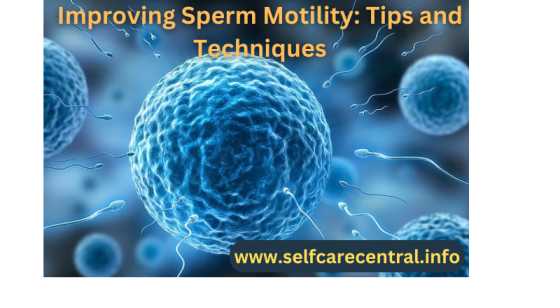- Understanding Sperm Motility
1.1. What is sperm motility?
Sperm motility is all about how well sperm can swim. It’s like a tiny race where the fastest swimmers have the best chance of reaching the egg. When we talk about motility, we’re looking at how many sperm are moving & how well they’re moving. Some might be zipping along in straight lines, while others might be going in circles or barely moving at all.
1.2. Importance of sperm motility in fertility
Motility is super important when it comes to making babies. Think of it like this: even if you have millions of sperm, if they can’t swim well, they might not make it to the egg. Good motility helps sperm navigate through the female reproductive tract and increases the chances of fertilization. It’s not the only factor in fertility, but it’s a big player.
1.3. Factors affecting sperm motility
Lots of things can impact how well sperm swim, such as:
- Age: As we get older, sperm motility can decrease.
- Lifestyle choices: Things like smoking, drinking alcohol, and being overweight can slow sperm down.
- Health conditions: Certain illnesses or infections can affect sperm motility.
- Environmental factors: Exposure to chemicals or high temperatures can be harmful.
- Genetics: Sometimes, it’s just in our DNA.
Read more: The Best Diet Plan to Avoid Kidney Stones
- Lifestyle Changes for Improved Sperm Motility
2.1. Maintaining a healthy weight
Keeping a healthy weight is really important for sperm health. I remember when I was carrying a few extra pounds, and it made me worry about my fertility. Losing weight through a balanced diet and exercise can really boost sperm motility. It’s not about being super skinny; it’s just finding a healthy balance.
2.2. Regular exercise and its benefits
Getting moving is great for your swimmers! Regular exercise improves blood flow throughout your body, including to your testicles. This helps with sperm production & motility. You don’t need to become a gym rat—moderate exercise like brisk walking or cycling can make a difference. I started going for daily walks, and it made me feel better overall.
2.3. Stress reduction techniques
Stress can be a real sperm slower. Finding ways to relax and unwind is crucial. Some people find meditation helpful; others prefer yoga or deep breathing exercises—me? I love going for quiet walks in nature when I’m stressed.
Read more: 10 Foods to Eat and Avoid for a Healthy Liver
- Nutrition and Diet for Optimal Sperm Health
3.1 Essential vitamins and minerals
Eating right can give your sperm a boost with key nutrients like:
- Zinc: Found in oysters, beef & pumpkin seeds.
- Vitamin C: Abundant in citrus fruits, berries & leafy greens.
- Vitamin D: Get it from sunlight or fatty fish like salmon.
- Folate: Leafy greens, beans & whole grains are good sources.
3.2 Foods that promote sperm motility
Some foods are like superfuel for sperm:
- Walnuts: Rich in omega-3 fatty acids.
- Berries: Packed with antioxidants.
- Dark chocolate: Contains arginine, which may improve count & motility.
- Pomegranate: May increase motility and reduce oxidative stress.
I started including more of these foods in my diet & felt healthier overall.
3.3 Dietary habits to avoid
Just as some foods help, others hinder motility:
- Processed meats: High in saturated fats & preservatives.
- Soy products: May decrease concentration.
- Excessive caffeine: Can reduce count & motility.
- Sugary drinks: Linked to lower motility.
4 Environmental Factors and Sperm Motility
4.1 Avoiding toxins and pollutants
Our environment impacts our sperm health:
- Use natural cleaning products when possible.
- Avoid plastic containers for food storage.
- Be cautious with pesticides & herbicides.
I switched to glass containers for leftovers & started using more natural cleaning products around the house.
4.2 Managing heat exposure
Sperm likes it cool; too much heat can slow them down:
- Avoid hot tubs & saunas.
- Take cooler showers.
- Don’t sit with a laptop directly on your lap.
4.3 Proper clothing choices
Believe it or not, what you wear affects your sperm:
- Loose-fitting underwear.
- Breathable fabrics like cotton.
- Avoid very tight pants.
Switching to boxers made me feel more comfortable—a bonus? It’s good for health too!
5 Medical Interventions And Treatments
5.1 Medications for improving sperms’ mobility
Sometimes doctors might prescribe meds:
Clomiphene citrateTamoxifenPentoxifylline
Always consult healthcare before any medication.
5.2 Surgical Options
In some cases, surgery might be suggested:
Conditions like Varicocele (enlarged veins)
Blockages in reproductive tract
5 . 3 Assisted technology techniques :
If other methods fail , advanced options are available :
Intrauterine insemination ( I U I )
In vitro fertilization (I V F)
Intracytoplasmic injection (ICSI)
They are effective but also emotionally-demanding .
6 Natural Supplements Remedies
6.1 Scientifically backed supplements:
like Coenzyme Q10 , L-carnitine , Vitamin E
Tried CoQ10 felt much energetic
some traditional remedies include :
Maca root , Ashwagandha , Ginseng
6 . 2 Potential risks involve :
Natural supplements side effects—always talk doctor .
7 Tracking Monitoring
7 . 1 At – home kits
Now kits check count at-home : these starting points still lesser professional tests
7 . 2 Professional semen analysis :
Semen analysis gives detailed info : numbers measured :
Count , Motility , Morphology (shape ), Volume of semen
Summary :
Improving takes time—which largely depends overall choices–Being patient shows results ‘ed months later :
Frequently Asked Questions :
How long typically improvement seen ?
About two-to-three months as new takes that long
Does age impact negatively ?
Yes but weighed lifestyle combats impact
Low hinder possibilities child birth ?
Possible harder else fertility treatments assist
Regular interval testing actively-try conceive ?
Consulting doctor aids testing monthly—alternatively annually sufficient unless trying actively
Specific activities aid exactly unique exercises however indirectly influence moderate regular sessions do jogging cycling Overall health checking beneficial !”


